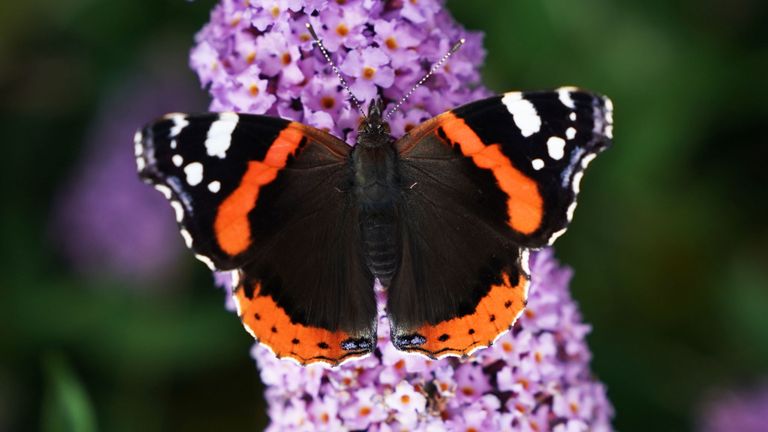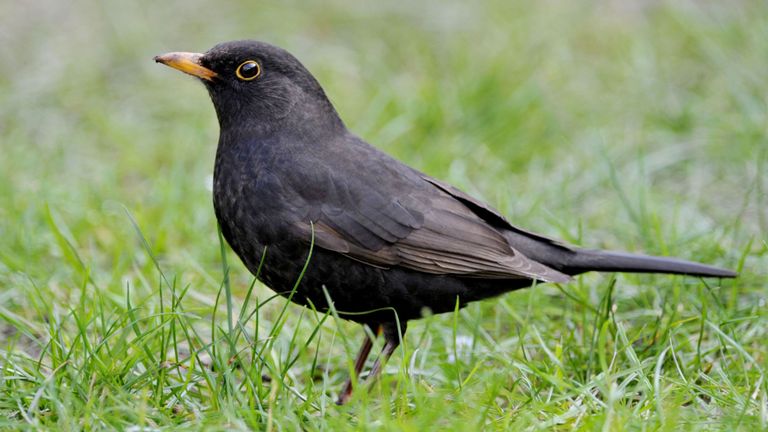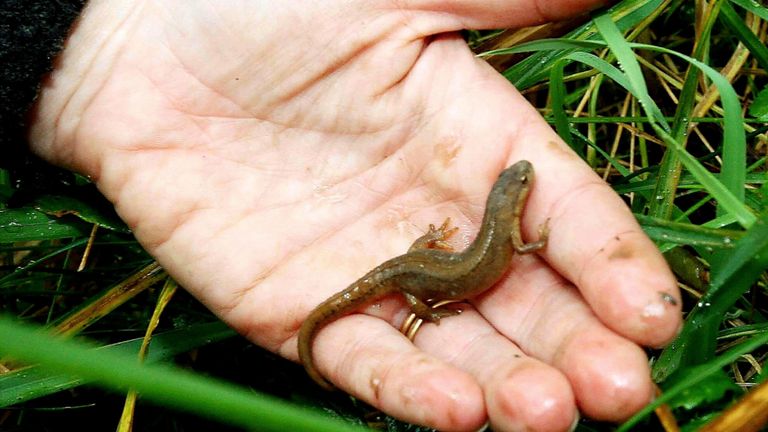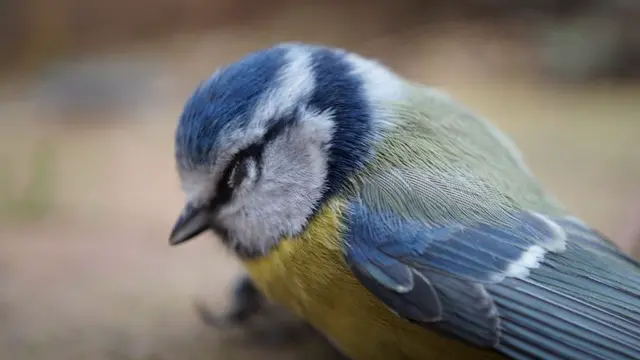Britain's wildlife is being confused by "lost" winters, potentially putting some species at risk, conservationists have warned.
Nature's Calendar, which asks members of the public to record signs of the changing seasons, says butterflies, newts and blackbirds have been spotted building nests months before they usually do.
It says its analysis of the conditions in 2019 found that all but one of the 50 spring events the scheme tracks were early last year because of higher temperatures during the winter months.

Image:A red admiral butterfly is thought to have woken early in the Channel Islands
As a result of milder weather, many species are getting muddled and losing their seasonal cues, according to the Woodland Trust which runs the scheme.
It claims some could be tempted out of hibernation too soon and face plummeting temperatures due to increasingly changing weather, while some birds appeared to be breeding too late to make the most of vital food sources.
Listen to "A New Climate" on Spreaker.
**:: A New Climate is a series of special podcasts from the Sky News Daily. Listen on **
Apple Podcasts
**, Google Podcasts
, Spotify
, Spreaker
**
Lorienne Whittle from the Woodland Trust said: "It seems that last year we almost lost winter as a season, it was much milder and our data shows wildlife is responding, potentially putting many at risk.
"Our records are showing random events such as frogspawn arriving far earlier than expected, possibly to be wiped out when a late cold snap occurs."

Image:Nesting blackbirds have been spotted earlier than normal
She added: "It appears that some species are able to adapt to the advancing spring better than others.
"Oak trees respond by producing their first leaves earlier and caterpillars seem to be keeping pace.

Image:Newts are among the species which have been spotted earlier than normal
"But blue tits, great tits and pied flycatchers are struggling to react in time for their chicks to take advantage of the peak amount of caterpillars, the food source on which they depend.''
Surprise sightings in December include peacock butterflies believed to have been woken early because of mild weather in Kent and Cornwall, and a red admiral butterfly in the Channel Islands.
Active newts were also recorded late in the month, while blackbirds were spotted building nests in early January.
 简体中文
简体中文



